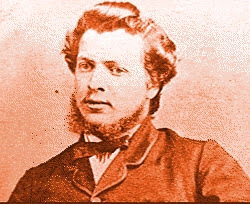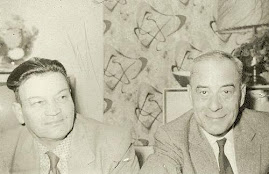Sorry we have been away on a bit of a holiday for the past week and have just now been back to review the comings and goings.
A press release was issued yesterday from the Métis Nation of Alberta as follows:
http://www.nationtalk.ca/modules/news/article.php?storyid=9946 or at
http://www.albertametis.com/MNAHome/Home.aspx
MEMORANDUM TO: Métis Citizens and Harvesters
FROM: Audrey Poitras, President, Métis Nation of Alberta
DATE: May 27, 2008
RE: Update on Métis Nation’s ‘Hunt for Justice’
__________________________________________________________________I
I am writing to provide Métis Nation of Alberta citizens an update on our ongoing Métis rights ‘hunt for justice’ in Alberta.
The MNA continues to actively defend all of our harvesters who have been charged by the Alberta Government, while following our MNA Harvesting Policy.
We have over 17 Métis harvesters charged now, with this number increasing each month. The Alberta Government has charged Métis Elders, entire families, single mothers, community harvesters and Métis youth. Moreover, we have charges from across the province – Lac La Biche, Valleyview, Breton, Fort MacMurray, Medicine Hat, Lethbridge, Cochrane, Hinton, Red Deer are just some of these locations.
Our Métis lawyers – Jason Madden and Jean Teillet – have advised me that the Deputy Chief Judge of the Alberta Provincial Court has now designated one Judge – the Honourable Judge John Maher – to case manage (i.e. oversee) all of the Métis harvesting cases. Based on this development, all of the existing Métis harvesting cases and all future cases will be moved to Edmonton (Sherwood Park) and overseen by Judge Maher there.
This is a positive development because it has alleviated the pressure the MNA has had in having to arrange for agents to make court appearances for our harvesters, as the various charges come up in court locations across the province. As well, all of the matters moved to Edmonton will be adjourned, pending the outcome of our test case, so we will not have to proceed with defending cases across the province. Equally important, Judge Maher is attempting to make the management of these charges as efficient as possible, so we are able to have our day in court sooner rather than later.
Currently, our legal counsel is attempting to arrive at an agreement with the Crown on what charges will proceed as a consolidated ‘test case’. Since the Alberta Government is taking the position that there are absolutely no Métis rights in central and southern Alberta, we have confirmed that we will be combining existing cases out of the Cypress Hills region and Lethbridge.
We are also attempting to consolidate charges we have from the Calgary and Buffalo Lake areas into the ‘test case’. Presently, the Crown is resisting this, since it will likely ensure than any decision will have to deal with a larger Métis community, rather than simply a localized one around Medicine Hat. However, since including the charges from the Calgary and Buffalo Lake areas will not increase the amount of evidence that will have to be presented or the court time needed, we are hopeful an agreement to include these charges will be reached.
It is also important to note that our Métis rights ‘test case’ will also directly challenge Ted Morton’s unilateral and arbitrary Métis Harvesting Policy currently in place that is in place in northern Alberta. Ted Morton’s policy attempts to limit Métis harvesting practices, customs and traditions to 170 kms circles around select “Métis communities”. If we are successful in our ‘test case’, Ted Morton’s arbitrary circles would disappear.
As well, a key part of our research and legal argument in the ‘test case’ will be that Métis are interconnected throughout northern, central and southern Alberta and that Métis have historically and continue to harvest throughout Alberta, as a part of our way of life. Therefore, a win in the ‘test case’ will be a win for all Alberta Métis. This approach is similar to what other Métis governments have done in pursuing their test cases. For example, the Métis Nation of Ontario took the Powley case out of Sault Ste, Marie as a test case, the Manitoba Métis Federation took the Goodon case out of southwestern Manitoba for all Manitoba Métis, etc.
As more information on our ‘test case’ becomes available, I will continue to provide MNA citizens with updates. As well, a more detailed update will be provided to Métis citizens at the MNA Annual General Assembly in August.
Finally, please remember to review the MNA Harvesting Policy before you go out harvesting, and, if you are charged, please ensure you forward all information to the MNA Head Office to the attention of Robert Lee, so we can ensure we are aware of all existing charges and ensure your charges are consolidated with the other cases in Edmonton.
Sincerely,
Métis Nation of Alberta
Audrey Poitras
President
Thursday, May 29, 2008
Good Day - We are Back
Posted by
MetisMama
at
10:15 AM
![]()
![]()
Subscribe to:
Post Comments (Atom)





4 comments:
Never could figure out why Aboriginals want "special" rights when it come to hunting.
Yea I know its supposed to be some part of our "inherent" right that was ours before the Europeans came and conquered us (key word here "conquered) and some claim that because our ancestors practiced this (because there was no local Super Store, and if you didn't hunt you starved) we should have the right to do so also. My argument here is, "IT WAS THE SAME FOR ALL THE OTHER PEOPLE WHO CAME TO THIS LAND AND PIONEERED IT" My Scotish grandfather on my mothers side had to hunt to provide for his family in the early 1900's when he came here from Scotland to the forests of Northern Ontario.
What makes Canadian Aboriginals so special to have these rights?
Aboriginals cry that it isn't fair and that they haven't been treated fairly by the "whiteman". But its a different story when it comes to hunting, cause they don't want to play by the rules and have special seasons to hunt, or be required to purchase licenses like the white Canadian.
I guess some are more equal than others.
Besides its good money for lawyers and Aboriginals are good at keeping lawyers well fed.
You know Frank – it is funny process sometimes – when Métis Mama posts items I sometimes wonder exactly what your next comment or position will be. I guess I am a little surprised that the limited understanding of the Métis harvesting position or further to that the position of Aboriginal rights is based on equality for you. Your cousin Will has his work cut out for him to try and explain what inherent rights are and that we do not identify as a “Special Interest Group”.
An inherent right is mine at birth and no government or other source can take it away from me. I have not been conquered and nor have my birth rights been replaced by anything more special than anyone else’s birth right. Frank I have not seen where we talk about the “whiteman” as you call it and much like you we have all had ancestors who originated from Europe. Just for some real facts – the hunters that are taking thousands of animals each year out of the life cycle are non Canadian individuals who make a very aggressive market in Sport Hunting. The Métis in Alberta are estimated to be eating around 600 animals a year. Now that is what is special that the process of Mr. Morton’s American friends – for the sake of trophy hunting - will reward our government for exploiting wild life while some people will fight a few Métis people for putting food on their table.
Special Interests groups here in Canada – are Hunting Associations that are funded by the Government to have intervener status in courts against our Aboriginal right to hunt. As Métis – we are not all packing guns and killing wildlife but if we choose to feed our families on traditional food – we have that right. You should take the time to read the court documents related to Powley. Give your cousin Will a call – he just wanted one duck – while industry In Alberta kills thousands in their toxic ponds. That is what is special …
I totally agree with what you wrote about the sport hunters and their mis use of a natural resourse. AND I am not against anyone hunting to put food on the table. BUT I think that the laws for hunting should apply equally accross the board for everyone and not have some different law for the Aboriginals because their ancestors were hunters and gatherers. Hunting animals a hundred years ago was part of everyones culture and was also part of everyones traditional food. Here in Russia and Finland, moose and deer are part of their diets as well and was carried over to Canada with everything else. Hell they even have a delicacy made from the meat of the Beaver. That argument has no where to go.
I support all those who are fighting for this right to hunt. I support my cousin Will. I do this because Metis have support one another if we are to gain anything. BUT it doesn't mean that I agree that what they are doing is the common sense thing to do. It makes us look like we deserve special rights that other Canadians don't deserve. And that isn't good for relations between the Aboriginal people and other Canadians.
Time for both you guys to take a step back. How many Aboriginal people in Canada truly depend on hunting for subsistence? Certainly not Will Goodon!
If Albertan Metis consume about 600animals a year, given the province's vast size and wildlife population isn't that akin to peeing in the ocean?
As for the "whiteman," the Metis' greatest challenge will come from their First Nations cousins. Do you really think they want you to have the same gathering rights as they already enjoy?
Non-Canadian trophy hunters, it's up to provincial conservation authorities to set quotas such that no species are endangered.
Look at the United States' recent declaration it's placing the polar bear on the endangered list. Now the Inuit are displeased because they stand to lose a significant source of revenue from American trophy hunters who won't be able to cross the border with their "prizes."
While interesting, both your agruments are academic and don't really reflect reality.
Post a Comment